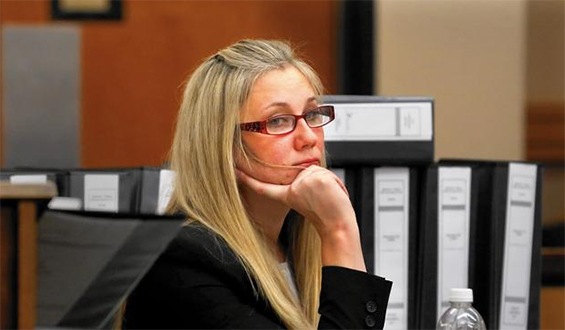Education
Court Rejects Student Claim That Law School Lied Over Employment

A jury has decided that one of the lowest-performing law schools in America did not mislead one of its recent graduates who sued the school, charging that they made false promises that she would find a job after graduating.
The claim made by Anna Alaburda against the Thomas Jefferson School of Law was rejected by the San Diego Superior Court in a 9-3 vote after a deliberation went on for four hours over two days.
The lawsuit was filed in 2011 by Alaburda, who claimed the school falsified data in order to suggest a higher success rate of its graduates when they went to find jobs. Despite graduating near the top of her class in 2008, the 38-year-old woman has been unable to find full-time employment with a law firm. She argued that she had accrued $ 170,000 in student debt as a result of attending the school, and was seeking $ 125,000 in damages, writes Blake Neff for The Daily Caller.
Despite similar lawsuits being filed in courts across the country, this is believed to be the first to have made it to trial. While many of the lawsuits have been dismissed, critics suggest that the fact that they are being made at all implies a need for increased regulation and transparency for law schools which would better allow prospective students to be aware of their employment prospects, the debt they may hold upon graduation, and the chances they have of passing the bar.
Michael Sullivan, an attorney for the school, did acknowledge “isolated mistakes” and “clerical errors” made by the school in data collection, but said no evidence suggested that the school had blatantly lied to prospective students. He said while the verdict did not set a precedent, it could send a message to other students looking to sue. “Having an opportunity where it’s fully litigated, and depositions and documents examined, to see the hype, the chatter about that did not prove to be the truth, as found by a jury, I think that’s a helpful message,” Sullivan told reporters after the verdict, writes Gary Warth for The San Diego Union-Tribune.
According to juror Wade DeMond, it was unclear how the school had collected employment data after Alaburda had graduated, but he believed it had made a good faith effort in her case.
“The jury instructions, the questions we were asked, were very specific and they were time-bound: Did Thomas Jefferson falsely represent employment data for the U.S. News & World Report editions that she reviewed? So that means the whole thing gets narrowed down to the 2004 and the 2005 editions,” he told reporters.
In 2010, the school reported post-graduation employment figures that went above 70% and topped out at 90%. However, the school did not disclose that those figures had included part-time positions and non-legal work such as pool cleaning and retail work at Victoria’s Secret, according to Alaburda’s attorney, Brian Procel.
Procel went on to say that the school was consistently reporting unemployed students as being employed in addition to shredding surveys and other documents that could show a different picture pertaining to employment prospects upon graduation, reports Elizabeth Olsen for The New York Times.
Representatives for the school said efforts were being made to improve reporting at all law schools and noted their regret over any negative attitudes the situation placed onto the school.
Author information
The post Court Rejects Student Claim That Law School Lied Over Employment appeared first on Education News.

Comments (0)